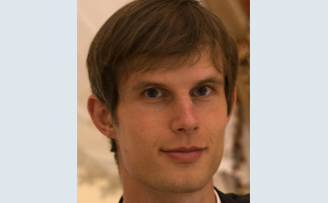Dr. Matej Skorvanek graduated at the P. J. Safarik Unversity in Kosice, Slovakia and obtained his PhD degree from University of Groningen, the Netherlands, working on topic “Fatigue, apathy and Quality of Life in patients with Parkinson’s disease“. Currently he is the head of Movement Disorders Unit at the Dept. of Neurology, P. J. Safarik University and University Hospital of L. Pasteur in Kosice and one of the founding members of Movement Disorders section of the Slovak Neurological Society. He is also a 2015 awardee of the Movement Disorder Society program “International LEAders program for Young Movement Disorder Neurologists” – MDS LEAP. Dr. Skorvanek is also currently part of the leadership of the European Section of the Movement Disorder Society as a member of the MDS European education committee and furthermore is a member of the MDS Committee on rating scales development, the MDS-UPDRS task force, MDS webpage editorial board and national representative of Slovakia in the European network for the study of dystonia syndromes (COST BM1101). His current major research interests include neuropsychiatric symptoms and quality of life issues in Parkinson’s disease and dystonia, clinical and tissue biomarkers of premotor Parkinson’s disease, genetic studies of dystonia and other rare movement disorders. He is also involved in research projects related to Huntington’s disease. From the clinical perspective he is involved in management of both hypo- and hyperkinetic movement disorder patients, he is in charge of the deep brain stimulation program in Kosice and also pump therapies for Parkinson’s disease.
Dr. Skorvanek leads the program for Huntington’s disease patients in Eastern Slovakia, he is also involved in the clinical management and research of rare movement disorders. In collaboration with colleagues from Erasmus MC in Rotterdam he identified a new gene for paroxysmal exercise-induced dystonia last year (shared first author). Since research of rare diseases is much more effective in research networks, collaboration in the European Reference Network on Rare Neurological Diseases will certainly bring a mutual benefit to all collaborating partners.
 POLSKIE STOWARZYSZENIE CHOROBY HUNTINGTONA
POLSKIE STOWARZYSZENIE CHOROBY HUNTINGTONA  MIĘDZYNARODOWY FUNDUSZ WYSZEHRADZKI
MIĘDZYNARODOWY FUNDUSZ WYSZEHRADZKI


